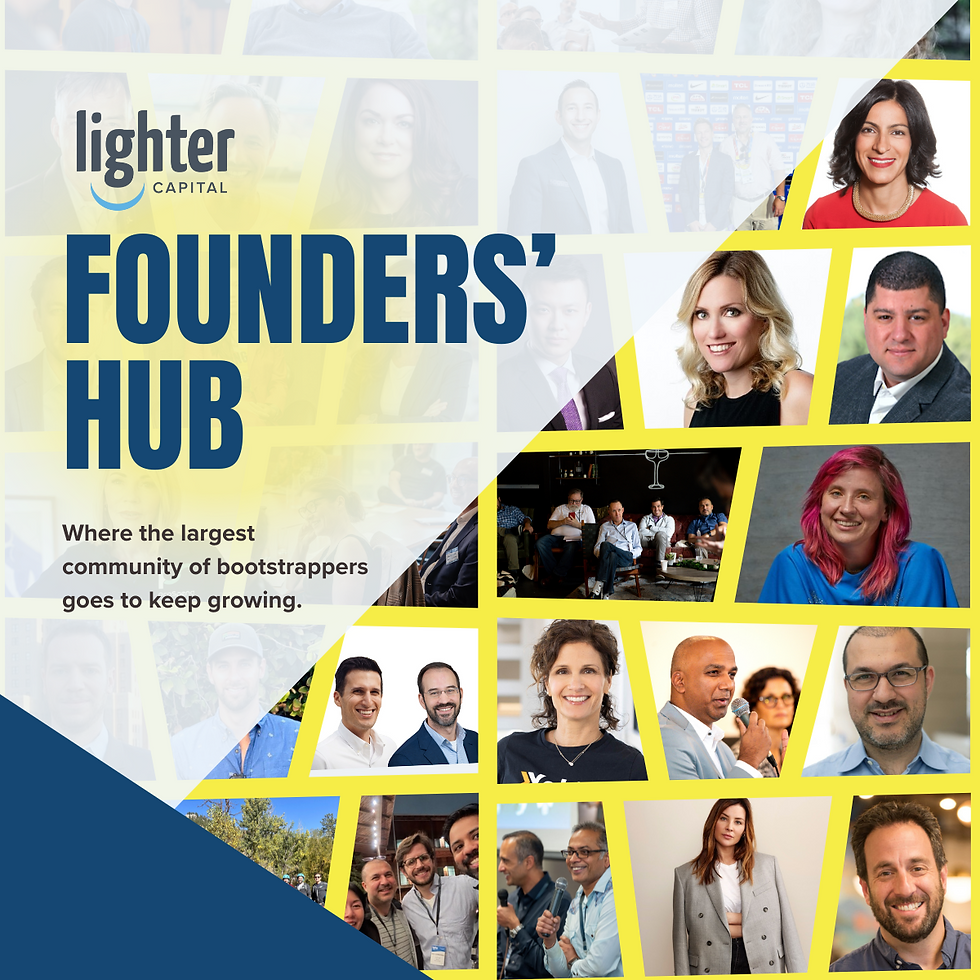In the AI Era, SaaS is Very Much Alive
- Stephanie Pflaum
- Jul 31, 2025
- 4 min read
Those of you who lived through the 1980s might remember Johnny 5 from the movie Short Circuit—a scrappy robot everyone thought was just hardware until he declared, “No disassemble! Johnny 5 is alive!” Just like everyone who underestimated Johnny 5, people today are erroneously discounting the evolution of SaaS.

Under the shadow of AI, experts and business leaders alike have declared “SaaS is dead.” That couldn’t be farther from the truth. In reality, SaaS is alive and kicking, supercharged by AI advances.
Here are the 4 principles guiding SaaS businesses to become faster, smarter, and more resilient in the era of AI.
1. Automate or die
The value drivers in SaaS are changing. Customers need more than pretty dashboards and quick insights—they need problems identified and fixed before they finish their morning coffee. Users expect SaaS products to deliver more than to-do lists, going the extra mile to solve problems and do the work. That said, SaaS businesses that don’t enable automation that adds value may soon be out of business.
Efficiency is still the name of the game, but so are outcomes. Salesforce CEO, Marc Benioff, claims AI will automate 50% of its internal work within the next year, removing tedious tasks and freeing up employees to focus on strategy and more complex challenges.
Today’s leading businesses are focusing on orchestrating a portfolio of agents—AI bots that can learn, make decisions, and act autonomously—within a technology ecosystem to create maximum value. According to McKinsey & Company, these interconnected systems can become a strategic advantage, if leaders get it right. SaaS businesses that understand this and effectively solve for it will be increasingly valuable.
2. Trust is your currency
AI is powerful, but it sometimes acts like a well-meaning intern: fast, confident, and occasionally disastrously wrong. Customers know this. They demand guardrails and transparency. That means security certifications, bias testing, and audit trails are now features, not buried in the fine print.
Brighthive (a Lighter Capital portfolio company), is bringing agentic AI to enterprises, transforming the way businesses use data. They're highly-focused on building trust to accelerate growth. In addition to achieving ISO 42001:2023 certification, they recently released their Agent’s Reasoning feature, which provides visibility into an AI agent’s “brain.”
3. Only the adaptable can thrive
A SaaS that can’t adapt is basically Blockbuster in a Netflix world. Founders used to roll out quarterly updates and call it innovation. Now? You have to pivot faster than a startled cat.
SaaS is not only working through a business model evolution, it’s also undergoing a shift in structural mechanics—think platform shift, not just software advances. Your SaaS has to be modular, API-driven, and flexible enough to ride the next AI wave without capsizing.
Integrating AI isn't one-size-fits-all, which is kind of the point. Businesses are looking to bring AI into their own workflows, which are unique to their teams, their tools, and their goals. No matter your solution, it needs to be able to play nice with others.
Zapier, for example, recently shared a sales automation their customer, Popl, created using OpenAI to automate and Zapier to integrate their tools. The impact for the business was huge: it replaced a pricey Zapier solution, saving them $20,000 a year. Additionally, they created a proprietary sales engine that scales without adding more complexity.
Popl CEO Jason Alvarez-Cohen said, "It's not just about doing more. It's about doing it better, faster, and with fewer resources."
SaaS pricing strategies are also changing, since static seat-based subscription models no longer make sense when automation can do human work at a lower cost. SaaS leaders are exploring everything from usage-based to outcome-based pricing, as well as hybrid models.
Check out this in-depth discussion about AI’s profound impact on SaaS value propositions and the consequent upheaval in pricing strategies.
3. SaaS investors are also adapting
In the era of AI, the very foundation upon which SaaS companies have built their business models is showing some cracks. For investors, this means a strategic rethink. The future cash flows, which form the bedrock of SaaS valuations, are now clouded with uncertainty. And that’s complicating things for SaaS founders looking to raise capital or eventually sell the business.
ARR and growth still matter to investors, but more importantly, they want to know if your SaaS can survive tomorrow’s AI plot twist. What are investors looking for? Everything we just covered:
Automation ROI: Can you prove you’re cutting costs or generating revenue faster?
Trust Signals: SOC 2, compliance, happy customers.
Adaptability: Evidence of pivots and fast iteration.
Defensibility: Proprietary data, strong ecosystems, community adoption.
According to Pitchbook data, AI startups ate up 58% of global VC funding in Q1 of 2025 ($42.3 billion of $73 billion), and capital was heavily concentrated in North America. AI startups with defensible AI, data ownership, and GTM clarity stood out in the deal making.
SaaS founders, who have embraced bootstrapping in large numbers over the last decade, fortunately have more options to fund working capital and AI investments as they power through this critical transition period.
Revenue-based financing is a popular solution for businesses with recurring revenue and a loyal customer base looking to fund growth and innovation—without giving up valuable equity in an uncertain, changing market. Vertical AI SaaS startup Plexus (AI for legal services) recently raised $6 million in a round led by existing investors and Lighter Capital to accelerate their AI-driven growth strategy, for example.
SaaS isn’t dead. Not by a long shot. But software businesses that don’t embrace AI at this moment might not survive. Ultimately, the future belongs to companies that can automate with intelligence, operate with trust, and adapt with speed.






